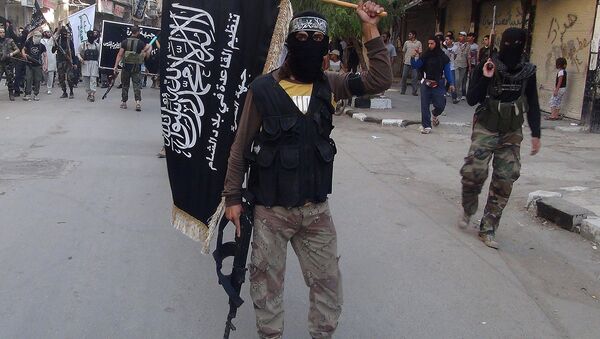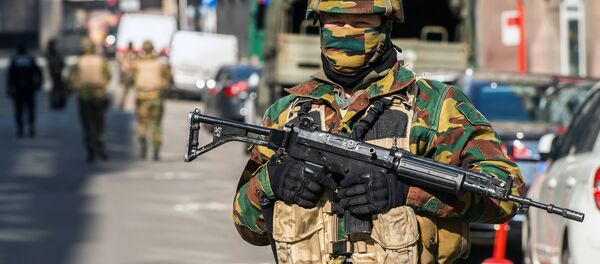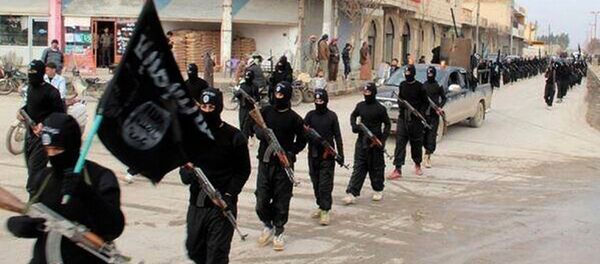Cartalucci asks how it happened that these extremists were allowed to re-enter Europe and rejoin society without any consequences.
"While some Western newspapers are already trying to frame the Belgium attack as 'incompetence' by European security agencies, there must be a better explanation as to why this 'war with ISIS' [Daesh] continues to drag on, when the source of ISIS' fighting capacity appears to be within rather than beyond the West — and aiding rather than opposing Western special interests," the analyst suggests in his article for New Eastern Outlook.
According to Cartalucci, there is something sinister about the fact that Daesh shows up in regions where the Western elites cannot intervene directly without a plausible pretext.
"This includes North Africa, the Middle East, and even [reaches] as far as Asia," he remarks.
Although the story sounds like another "conspiracy theory," these suspicions are not entirely groundless.
Leaked Defense Intelligence Agency's Report
Cartalucci recalls a leaked 2012 Defense Intelligence Agency (DIA) report on the Syrian military uprising that stated clearly:
"If the situation unravels, there is the possibility of establishing a declared or undeclared Salafist principality in eastern Syria (al-Hasakah and Deir ez-Zor), and this is exactly what the supporting powers to the opposition want, in order to isolate the Syrian regime, which is considered the strategic depth of the Shia expansion (Iraq and Iran)."
The report also clarified who "the supporting powers to the opposition" actually were:
"The West, Gulf countries, and Turkey support the opposition; while Russia, China, and Iran support the regime."
Moreover, the DIA report disclosed that the Syrian uprising was instigated and driven by Salafists, the Muslim Brotherhood and Al-Qaeda in Iraq, rather than an amorphous "moderate" Syrian opposition.
It means that while targeting Syria and Iran, "the powers supporting the opposition" has sided with Sunni fundamentalists.
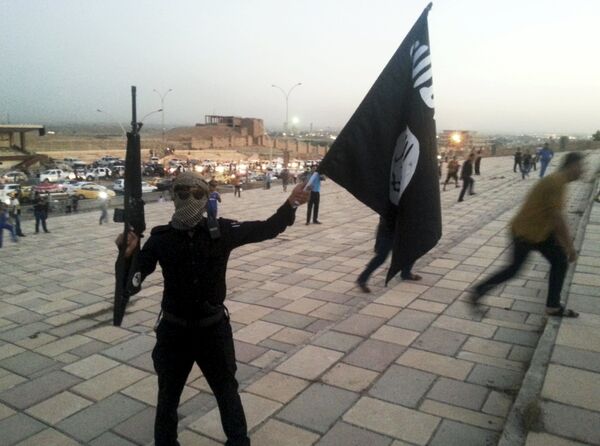
Running Deep In History
However, the historical roots of the controversial cooperation run deep.
In one of his interviews with Sputnik, American researcher and author F. William Engdahl emphasized:
"In my most recent book, The Lost Hegemon: Whom the Gods Would Destroy, I describe in great detail the perverse 'unholy alliance,' brokered by the CIA in the early 1950s to mate the Egyptian death cult known as the Muslim Brotherhood with the primitive Saudi Wahhabist branch of Islam. The consequence of that was Mujahedeen, the Chechen wars, Bosnia's Mujahedeen war against the Serbs, and now Al Qaeda-Al Nusra and Daesh."
It is no secret anymore that the Carter and the Reagan administrations worked closely with Afghani and Pakistani Islamists to expel the Soviet Union from Afghanistan.
Back in 1998, when asked by Le Nouvel Observateur whether he regretted that the Afghani insurgency eventually transformed into the Taliban and then gave birth to al-Qaeda, the mastermind of the US-Mujahedeen collaboration, Zbigniew Brzezinski noted:
"Regret what? That secret operation was an excellent idea. It had the effect of drawing the Russians into the Afghan trap and you want me to regret it?.. What is more important in world history? The Taliban or the collapse of the Soviet empire? Some agitated Moslems or the liberation of Central Europe and the end of the cold war?"
Unfortunately, it was only the beginning.
Prince Bandar bin Sultan and US-Saudi Deal
At the root of President George W. Bush's strategy to contain Iran lay a deal concluded with the Saudis and Israel after Washington's invasion of Iraq.
"It seems there has been a debate inside the government over what's the biggest danger — Iran or Sunni radicals… The Saudis and some in the Administration have been arguing that the biggest threat is Iran and the Sunni radicals are the lesser enemies. This is a victory for the Saudi line," Hersh wrote, citing Vali Nasr, a senior fellow at the Council on Foreign Relations and expert in Middle Eastern affairs.
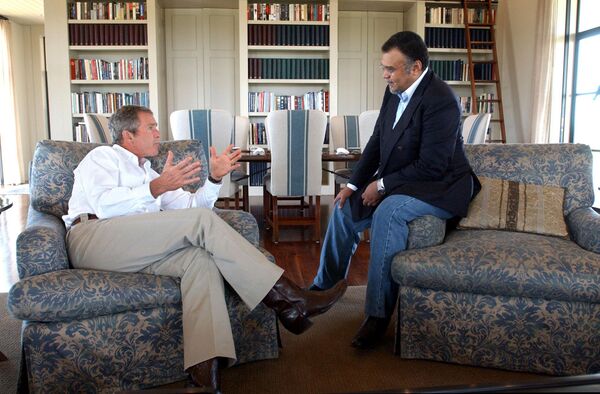
The investigative journalist pointed out that Saudi Prince Bandar bin Sultan played a crucial role in the US foreign policy shift. The covert war against Shiites originated not only from sectarian contradictions: the crux of the matter was that the religious minority is predominantly concentrated in oil-rich Middle Eastern regions.
Quoting a US government consultant, Hersh stressed that Bandar and other Saudis asserted to the White House that "they will keep a very close eye on the religious fundamentalists. Their message to us [the US government] was 'We've created this movement, and we can control it.' It's not that we don't want the Salafis to throw bombs; it's who they throw them at — Hezbollah, Moqtada al-Sadr, Iran, and at the Syrians, if they continue to work with Hezbollah and Iran."
The question then arises whether Washington can control the genie it let out of the bottle.
The situation is complicated by the fact that the infamous Muslim Brotherhood boasts of having a network of officially recognized organizations in Europe, including the Muslim Association of Britain (MAB), Union des Organisations Islamiques (UOIF) in France, and the Federation of Islamic Organizations in Europe.
"In Europe, where the flames of a 'clash of civilizations' are being furiously and intentionally fanned, ISIS (Daesh) serves as a constant implement to empower extremists on both sides, while drowning out the voices of unity, moderation, and peace in the middle. It allows for a growing police state and xenophobic tendencies to flourish at home, while justifying further war abroad," Cartalucci suggests.
